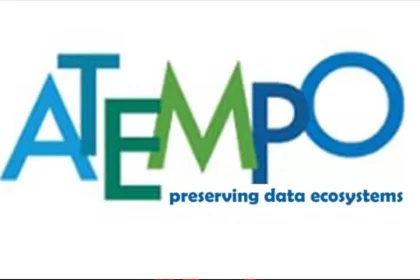Regulations grow stricter every year, and 2024 is no exception. New compliance demands require businesses to adapt quickly, regardless of their industry.
Whether you run a tech startup or a law firm providing legal services to grieving families, staying ahead is crucial.
Technology offers solutions that can streamline these processes. So how do businesses implement these tools effectively?
Join us as we explore strategies for meeting rising compliance needs head-on with confidence and foresight.
Understanding the Current Compliance Landscape
The terrain of compliance is in perpetual motion, shaped by the progression of technology and the fluidity of regulatory frameworks. Organizations encounter growing obligations to adhere to norms safeguarding data privacy, fostering transparency, and maintaining ethical conduct.
In 2024, a noticeable shift towards more rigorous international regulations affects all sectors. These regulations aim to create uniformity across borders. While this promotes global trade fairness, it also adds complexity for companies with international operations.
For instance, stricter GDPR-like laws have emerged outside Europe. Companies must now account for varying local rules in different regions while maintaining consistent policies worldwide.
Compliance isn’t just about avoiding penalties; it’s crucial for maintaining consumer loyalty and protecting business integrity in an increasingly scrutinized environment where missteps can damage reputations overnight.
Legal Services: Meeting Evolving Regulatory Demands
Law firms face growing compliance demands, particularly in sensitive practice areas. Those that provide legal services to grieving families navigate complex regulations involving privacy and ethical considerations.
Wrongful death lawyers, for example, handle cases requiring meticulous attention to evolving standards of confidentiality and professional conduct. The stakes are high; mishandling sensitive client information can lead to severe consequences.
To address these challenges, many firms now integrate advanced compliance management software. These tools help ensure adherence to changing laws while protecting client data efficiently.
Moreover, ongoing staff training becomes essential as new rules emerge regularly. By keeping abreast of legislative changes and investing in the right technology solutions, law firms position themselves as trusted advocates amidst increasingly stringent regulatory environments.
Integrating Technology Solutions for Compliance
Businesses turn to technology for efficient compliance management. Adopting the right solutions not only simplifies processes but also ensures consistent adherence to regulations.
- Automation: Refines everyday compliance operations, diminishing the incidence of manual mishaps and conserving valuable time.
- Data Analytics: Delivers analytical perspectives on compliance patterns, granting companies the foresight to preventatively tackle emerging concerns.
- Blockchain Technology: Assures transactional clarity and auditability, bolstering reliability within the financial realms.
Real-world implementation often starts with assessing specific industry needs. For example, financial services firms might focus on anti-money laundering software. Meanwhile, healthcare providers could prioritize secure data storage solutions adhering to patient confidentiality laws.
By embracing these tools strategically, businesses meet regulatory requirements while optimizing operational efficiency in an increasingly digital world.
Tailoring Compliance Strategies to Your Industry
Every industry faces unique compliance challenges. Crafting strategies that align with specific operational needs proves crucial for businesses. In the financial sector, firms must adhere to stringent anti-fraud measures, requiring specialized software and training programs to detect suspicious activities promptly.
Meanwhile, in healthcare, compliance centers around patient privacy laws like HIPAA. Providers implement secure communication platforms and data management systems that ensure confidentiality without sacrificing accessibility.
Retailers confront consumer protection regulations demanding transparent labeling and ethical sourcing practices. Implementing supply chain audits becomes necessary for meeting these standards.
Grasping the nuances of your sector’s regulatory terrain enables crafting bespoke solutions that meet critical standards with minimal interference. By concentrating on specialized strategies, businesses can uphold compliance and remain at the forefront of their specific marketplaces.
Common Challenges and How to Overcome Them
Navigating compliance comes with several challenges, yet strategic planning helps businesses manage these effectively.
- Complexity of Regulations: Laws often change quickly, creating confusion. Regular updates from reliable sources ensure companies stay informed and compliant.
- Resource Constraints: Smaller firms may lack dedicated compliance teams. Outsourcing services or utilizing automated tools offers cost-effective solutions.
- Data Stewardship: Managing considerable amounts of confidential data carries inherent security threats. Instituting stringent cyber defense protocols protects against intrusions and upholds data veracity.
- Workforce Education: Inadequate training can lead to inadvertent policy breaches by personnel. Consistent educational programs ensure staff remain cognizant of the latest compliance mandates and optimum procedures.
Detecting prospective impediments promptly, firms forge ahead with proactive approaches that confront complications directly, fostering a more fluid workflow within a rigorous compliance framework.
Embracing Change in a Regulatory World
Staying adaptable becomes key as compliance demands shift. By fostering a culture open to change, businesses respond more effectively to evolving regulations.
This adaptability not only ensures ongoing compliance but also positions companies to leverage new opportunities arising from regulatory advancements, creating an environment where change drives growth and innovation within the organization.










